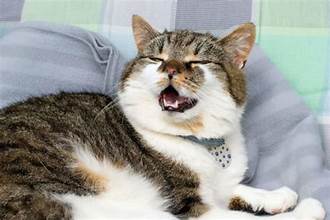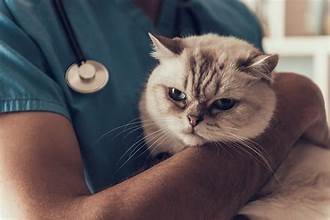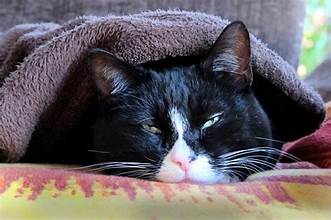Feline Upper Respiratory Infections (URIs), often called “cat colds,” are common illnesses affecting cats. While usually not life-threatening, they can cause discomfort and even serious complications if left untreated.
What are Feline URIs?
URIs are infections that affect cats’ upper respiratory tract, including the nose, sinuses, throat, and larynx. They are typically caused by viruses, such as feline herpesvirus and feline calicivirus, but bacteria can also be involved.
Symptoms to Watch For
Clear, watery, or thick discharge from the nose and eyes.
- Sneezing:

Frequent and sometimes forceful sneezing.
- Coughing:
A dry or wet cough.
- Eye Problems:
Conjunctivitis (inflammation of the eye lining), squinting, and eye discharge.
- Lethargy:
Loss of energy and decreased appetite.
- Fever:
Although not always present.
In some cases, particularly with calicivirus infections.
What to Do If You Suspect a URI
- Observe Your Cat:
Monitor your cat closely for any changes in behavior or appetite.
- Contact Your Veterinarian:
Schedule an appointment with your veterinarian immediately. They can diagnose the underlying cause and recommend appropriate treatment.

- Isolate Infected Cats:
If you have multiple cats, isolate the infected cat to prevent the spread of the infection.
Treatment Options
Treatment for URIs may include:
- Supportive Care:
Providing plenty of fresh water, encouraging food intake, and keeping your cat comfortable.
- Antibiotics:
If a bacterial infection is present.
- Antivirals:
In some cases, antiviral medications may be prescribed.
- Eye Drops/Ointment:
To treat eye inflammation.
Prevention
- Vaccination:
Vaccinating your cat against feline herpesvirus and calicivirus can significantly reduce the risk of infection.
- Stress Reduction:
Minimize stress for your cat, as stress can weaken the immune system.
- Hygiene:
Practice good hygiene, such as washing your hands after handling an infected cat.
Conclusion:
If you see any signs of Upper Respiratory Infections (URIs) in your cat, contact your veterinarian immediately. This can be a





Pingback: Best Facts on the Top 5 Diseases that Effect Cats - Positvley Pets